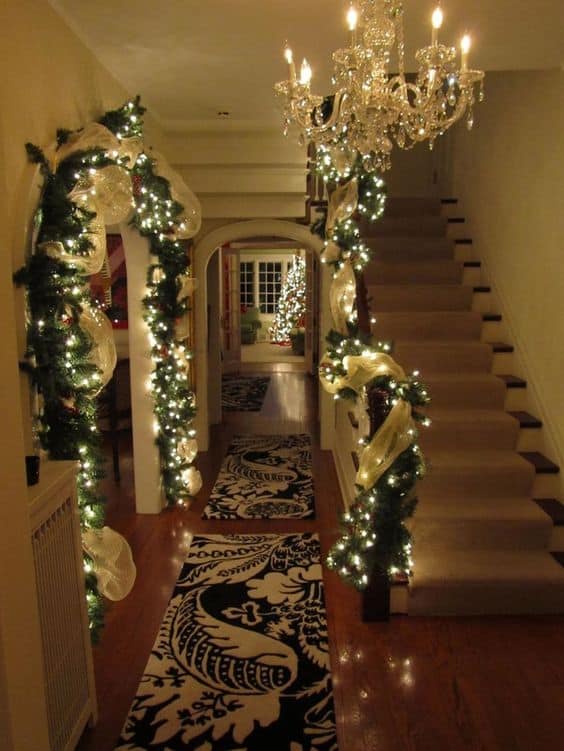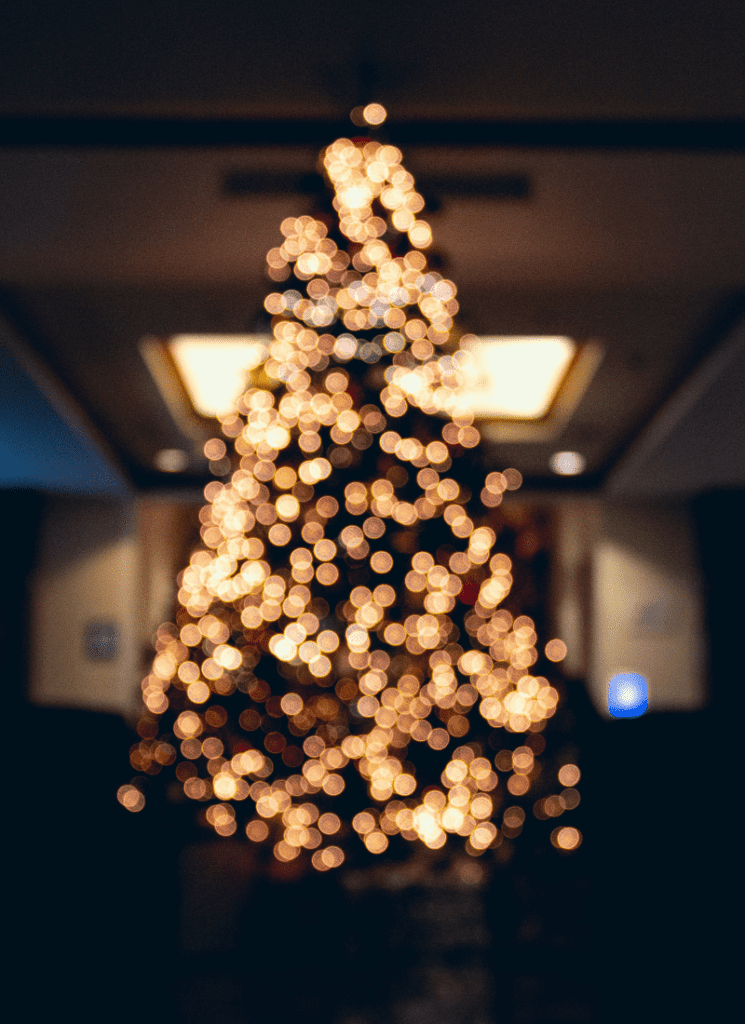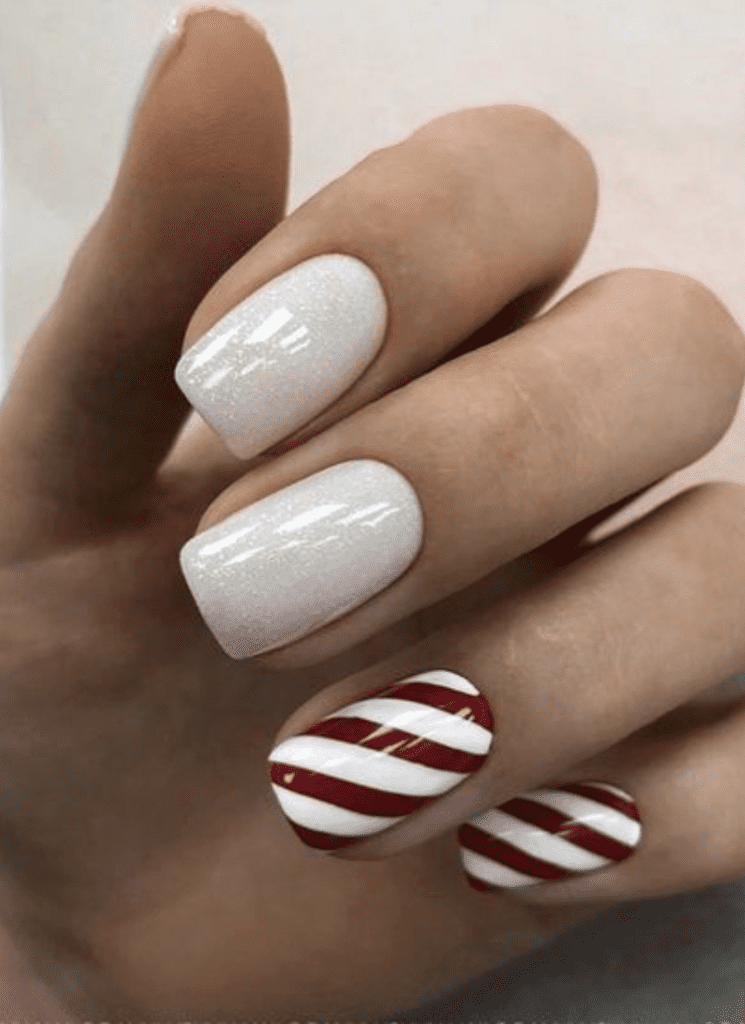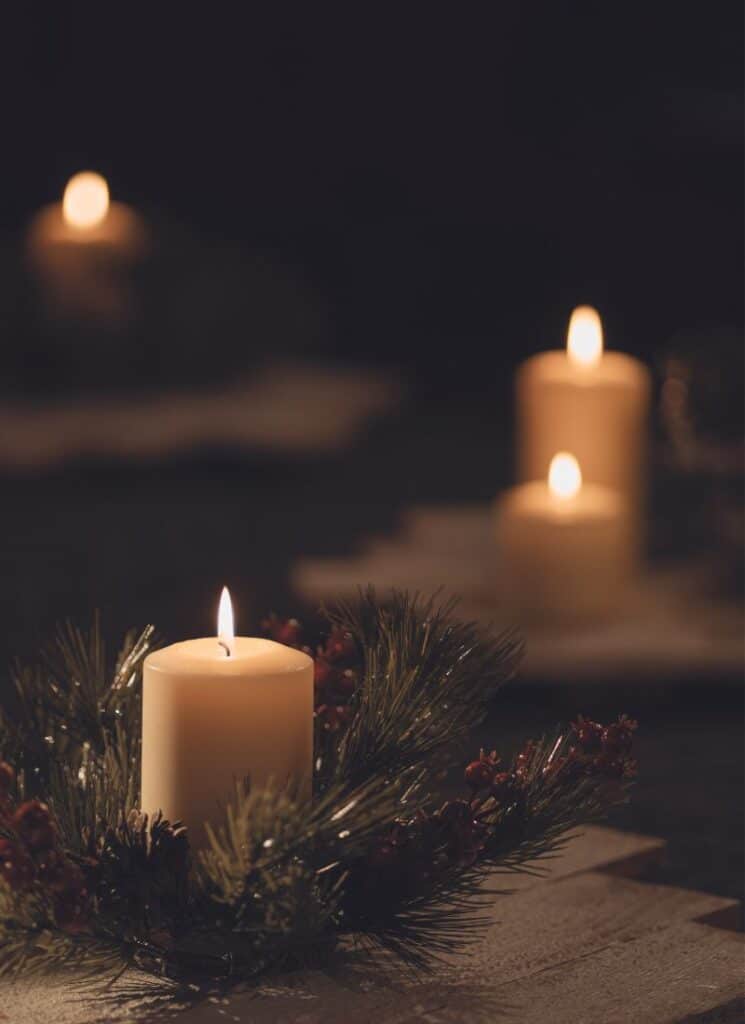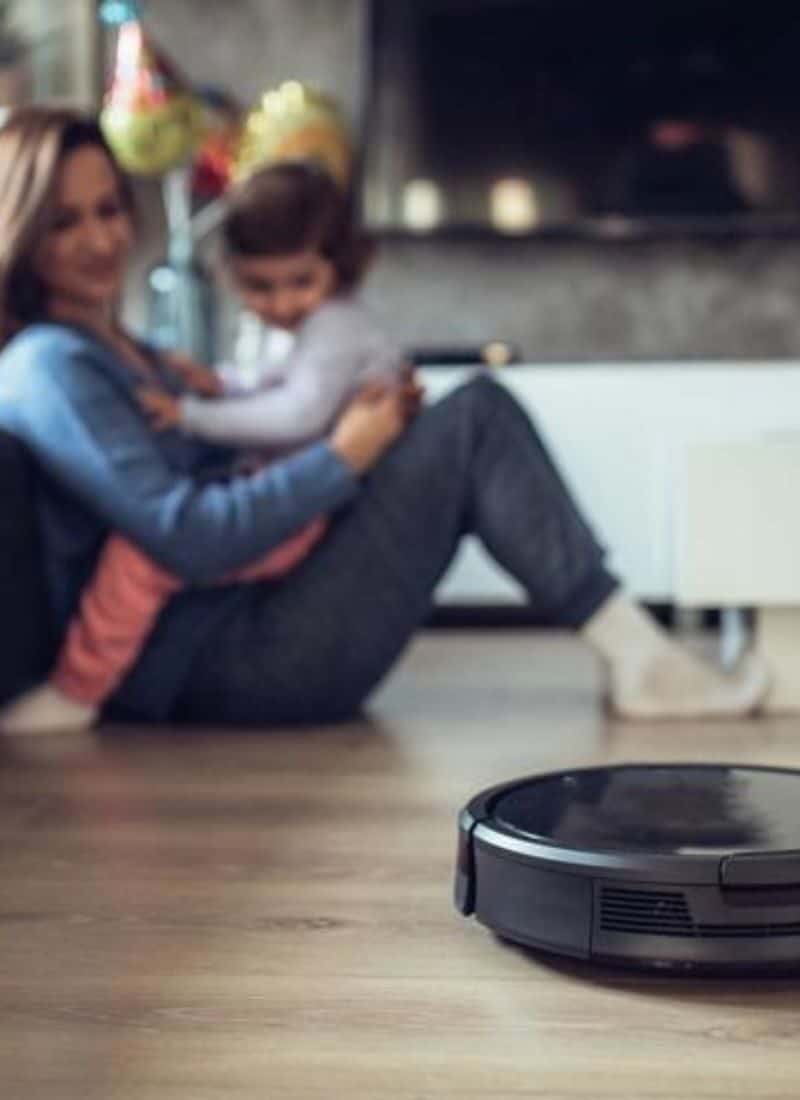Is this the first time you decorate your house/apartment with Christmas lights? Before you start, check out these 11 frequently asked questions about Christmas lights safety that can help you avoid some hazardous situations.
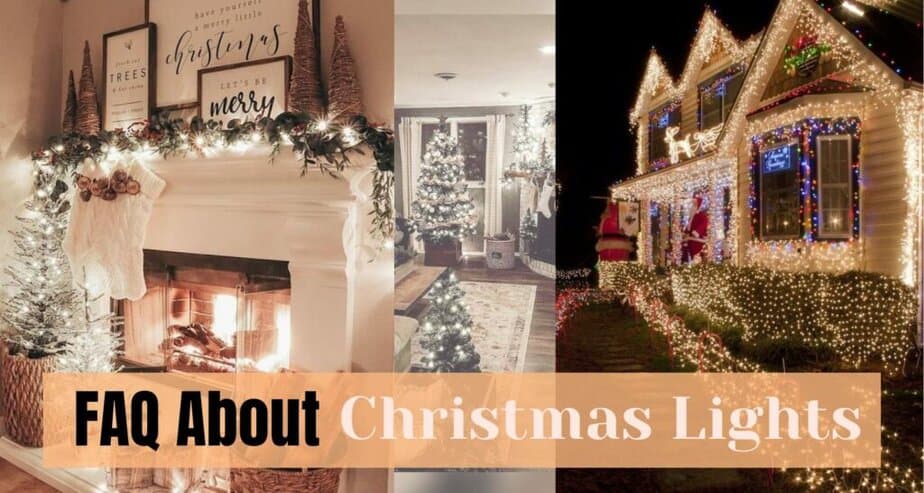
The most spectacular element of any Christmas decor is the lights. They contribute to creating that magical atmosphere we all love so much.
However, Christmas lights can also be extremely dangerous if we don’t know how to use them properly. I am sure many of you have heard of fires or electric shocks caused by them.
Therefore, this post provides answers on how to avoid some hazardous situations related to Christmas lights and enjoy fully the holidays without complications.
FAQ About Christmas Lights Safety
Can I Leave My Christmas Lights on 24/7?
If they are the traditional incandescent or fluorescent Christmas lights, then definitely do not leave them under operation constantly. The reason is that if left on too long, the light bulbs can heat up to very high temperatures and cause a fire.
Moreover, incandescent and fluorescent lights consume a lot of electricity, which will certainly affect negatively your energy bills at the end of the month. Therefore, it’s better to buy LED Christmas lights that use light-emitting diodes to produce light.
They last many times longer than the traditional Christmas lights mentioned above, produce minimal amounts of heat, and are much more efficient in terms of electrical consumption.
In general, well-manufactured LED Christmas lights can be left on 24/7 because there are no risks of them overheating and causing a fire, and their electricity consumption is not particularly high as well. Nevertheless, it is not desirable to leave even LED lights on constantly, especially when it is not needed.
Even if the LED bulbs are unlikely to start a fire, there is still a risk of faulty wiring or overloaded circuits which could cause trouble.
Furthermore, leaving your Christmas lights on during daylight hours or while you’re not home is pointless because you are only wasting electricity and resources, which ultimately has a bad impact on the environment.
In summary, if you want your Christmas lights to work 24/7 then only do it if they are LED, but even then it is not desirable.
Do You Leave Christmas Lights on All Night?
It is not advisable to leave your Christmas lights on overnight. Even if they look beautiful, they could cause a fire hazard because of overheating. They also spend a lot of electricity and can interrupt the normal sleep patterns of you and your neighbors.
If your Christmas lights are LED, then the chance of a fire is reduced to almost zero, and the electricity consumption won’t be as high. But even LED lights are nice to be turned off at night to give the transformer time to cool down.
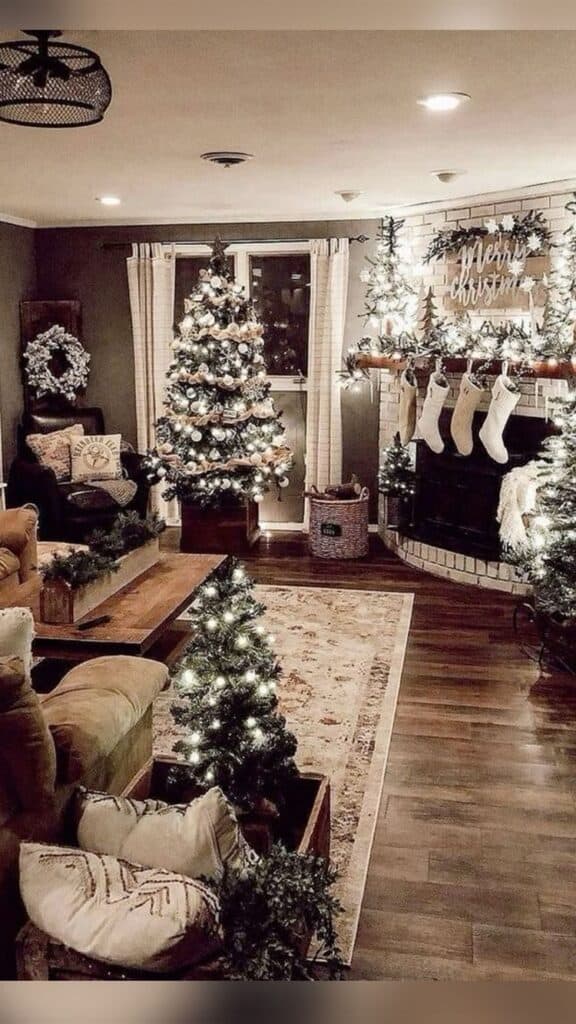
One more downside to leaving your Christmas lights on at night in your bedroom is that artificial light can disrupt your sleep. This also applies to your outdoor Christmas lights if they directly illuminate one of your neighbors’ bedrooms.
According to this article from Harvard Health Publishing, this is particularly true for the blue light that comes from LED lights that suppresses the body’s production of melatonin which is a hormone responsible for the normal course of the sleep-wake cycle.
For all the reasons listed so far, I strongly advise you not to leave your Christmas lights on at night, but to turn them off before going to bed.
How Might Christmas Lights Cause Fire?
There are a couple of ways in which Christmas lights can cause a fire. Most often this happens when there is a short in the circuit caused by faulty wiring. From there, electrical sparks can occur that can undoubtedly cause a fire if there are any easily flammable objects around.
Therefore, every year before you decorate your home with Christmas lights, carefully inspect each string of lights for things like frayed or bare wires. If you find any problem with the set, better throw it away and buy a new one.
Very often fires happen precisely because of old and cheap Christmas lights. I don’t think it’s worth risking a fire in your house or apartment over $20-$30, do you?
The second most common cause is the combination of very hot incandescent light bulbs and a dry Christmas tree. If the lights are left on for longer periods and are placed between twigs and other decorations that do not allow for heat to escape, the risk of starting a fire is high.
Here the solution is to replace your old Christmas tree lights with LED ones. There, the risk of fire due to overheating is zero, and you’ll also save on electricity costs because LED bulbs are up to 90% more efficient than incandescent ones.
Should I Leave My Outdoor Christmas Lights on All Night?
Yes, you can leave your outdoor Christmas lights on all night. However, be sure the lights are specifically designed for outdoor use to withstand the weather conditions during winter. Using indoor lights instead could be dangerous and create fire hazards.
What’s more, be very careful how you attach the outdoor Christmas lights to your home. Do not use things like nails or other sharp items that can damage the electrical cord.
Additionally, keep in mind that if you are going to leave the outdoor Christmas lights on overnight, this will certainly have an impact on your energy bill at the end of the month.
Also talk to your neighbors about whether this will be a problem, because they may not want your lights to illuminate their windows during the late hours.
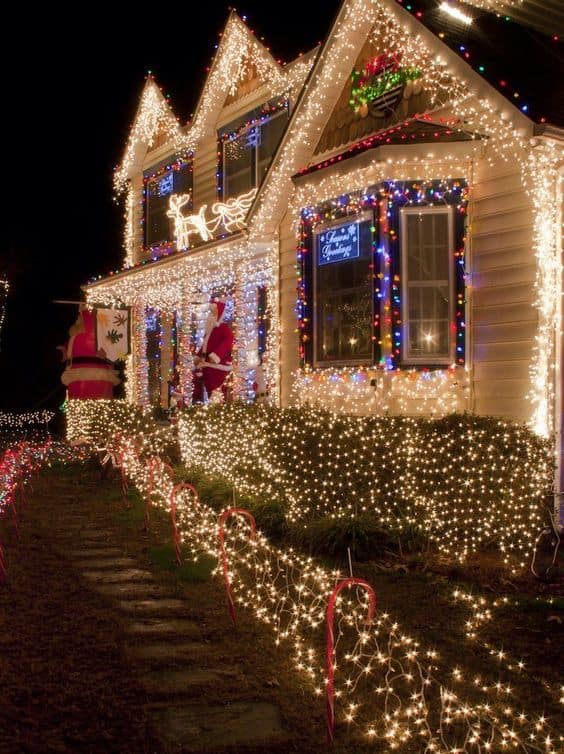
What Time Should You Turn Off Your Christmas Lights?
Turn off your indoor and outdoor Christmas lights before you go to bed and when you are going to be away from home for a few hours. It is just desirable to always be at home and to be able to react quickly if any problem arises with the lights such as shorting out for example.
Should I Unplug Christmas Lights When It Rains?
If you have Christmas lights that are specifically intended for outside use and are waterproof, then you don’t need to turn them off while it’s raining. However, make sure the electrical outlets where the lights are plugged into have no chance of getting wet.
When you buy Xmas lights, it should be written on the package whether they are for outdoor or indoor use only. Moreover, make sure they have an Underwriters Lab (UL) holographic tag. This means that experts have tested and approved the product in laboratory conditions. Therefore, if it says that the lights can be used in the rain, you can rest assured that there will be no nasty surprises.
And if you’re wondering if you should turn off your indoor Christmas lights when it’s raining, you can safely leave them on. However, never buy indoor Christmas lights for outdoor use because they can easily become damaged and cause a fire hazard.
Can You Use Tape to Hang Christmas Lights?
Yes, using tape is one of the easiest and quickest ways to hang your Christmas lights indoors or outdoors.
For indoors, use masking tape whose glue will be strong enough to hold the festive lights but won’t damage the surface or remove the first layer of paint on your wall when removing the decoration.
For outdoors, use tape that is waterproof and which will hold the string lights firmly in conditions of snow, rain, and extremely cold temperatures. A good product for this job that I recommend and have used is the Gorilla Tape All-Weather Extreme.
Can You Use a Staple Gun to Hang Christmas Lights?
Yes, this is one option to hang your Christmas lights, but it’s certainly not the most optimal one. You absolutely must find a staple gun whose packaging specifically says it is suitable for safely holding string lights.
If you do it with a regular staple gun, there is a risk of damaging the festive lights by puncturing the insulation of the wiring. This could cause shorts and from there a fire hazard.
I would recommend you go with plastic hooks and clips instead of staples. They are also easy to install and remove and there is no risk of damaging the Christmas lights.
Is There a Difference Between Outdoor and Indoor Christmas Lights?
Yes, there is a huge difference between outdoor and indoor Christmas lights. Those used for outdoor decoration are waterproof and can safely operate in rain, snow, and in extremely cold temperatures.
What’s more, the light bulbs themselves are more durable and last longer. This is not the case with indoor fairy lights and they will quickly break in such weather conditions.
As described here, when you buy Christmas lights keep an eye on the box for a green UL mark if you are going to use them indoors only and red if you want them for outdoors as well.
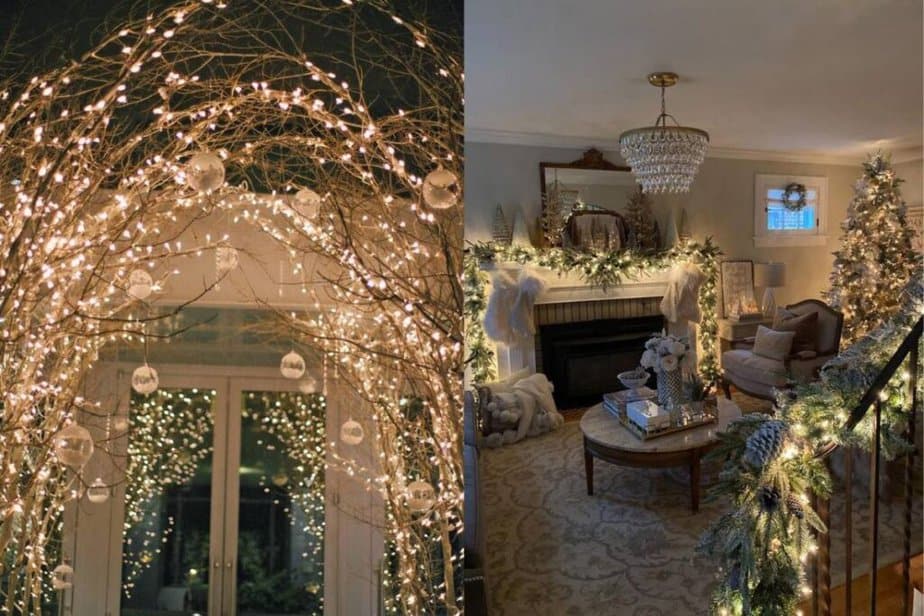
When Should Christmas Lights Come Down?
Whenever you feel like taking them down. There is no official or generally accepted date to take down Christmas decorations.
Also in some places, the weather simply doesn’t allow for weeks or even months after the holidays to safely take down the outdoor Christmas lights from the house.
Generally, most people in the US remove their outdoor Christmas decorations on some of the first weekends of the new year when they have more free time. But also another popular date to take down your Christmas lights is on January 6, Epiphany day.
Is It OK to Leave My Christmas Lights Up All Year?
You can certainly let your Christmas lights decorate your home all year round if you don’t mind the extra cost of electricity and they don’t disturb your neighbors. However, it is very important to inspect them regularly and keep an eye out for any damage caused by weather conditions or rodents.
Additionally, you should also bear in mind that the Christmas lights will wear out more quickly with year-round use. For this reason, I recommend you get LEDs as they last longer and use less electricity than the traditional incandescent ones.
